Publications
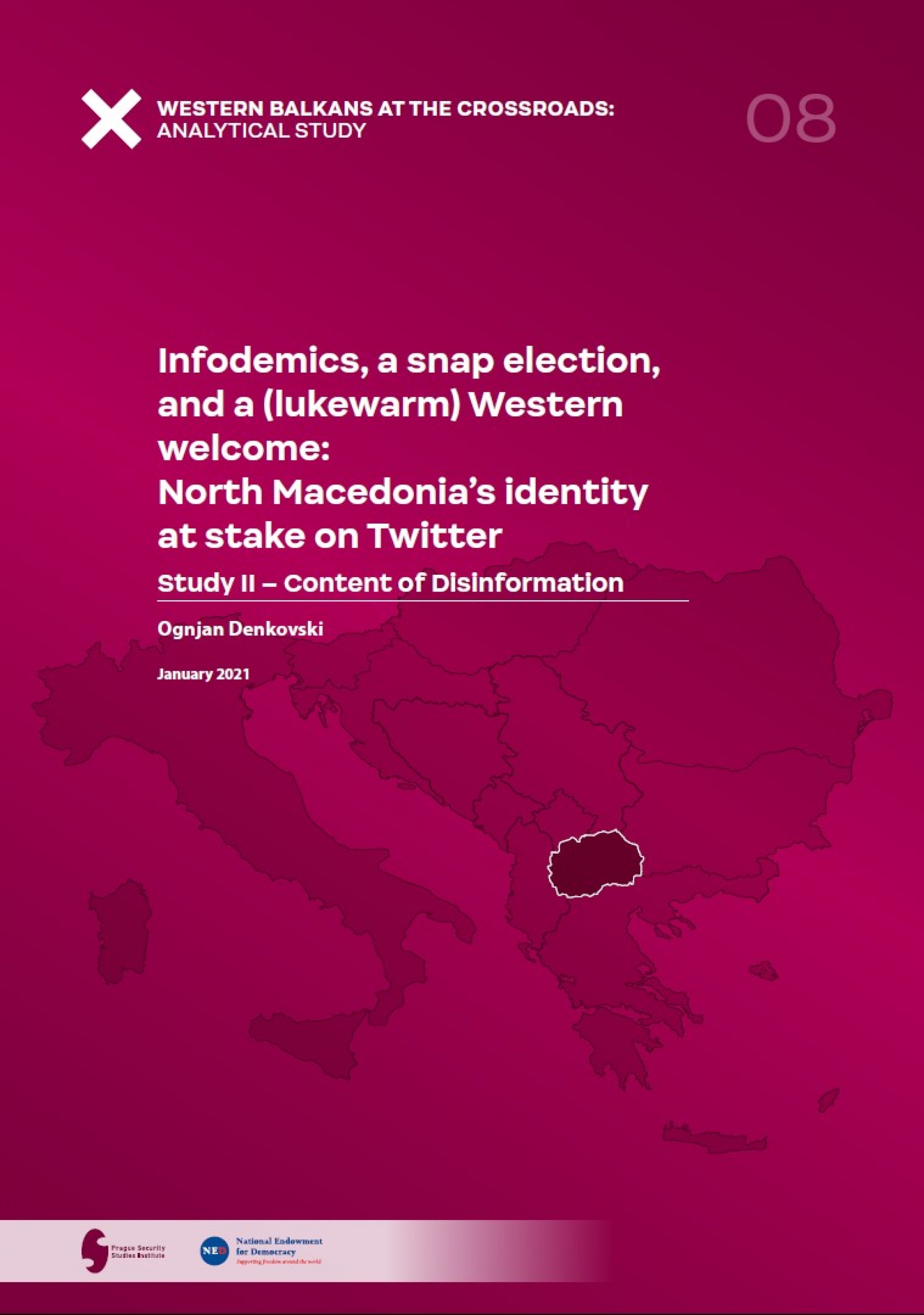
Information Resilience Program // Ognjan Denkovski / 22 Jan 2021
Infodemics, a snap election, and a (lukewarm) Western welcome: North Macedonia’s identity at stake on Twitter Study II – Content of Disinformation
The study examines the (news) domains which shaped public discussions in the period surrounding the July 2020 election in North Macedonia using a data set of the most popular daily tweets in the period between February and August of 2020 and complements this analysis with an examination of the most popular hashtags. The findings show that computational disinformation methods were used to shape public discussions in the period surrounding the election and were primarily based on content aligned with the geo-political goals of foreign actors opposed to the country’s progress on its Euro-Atlantic integration path.
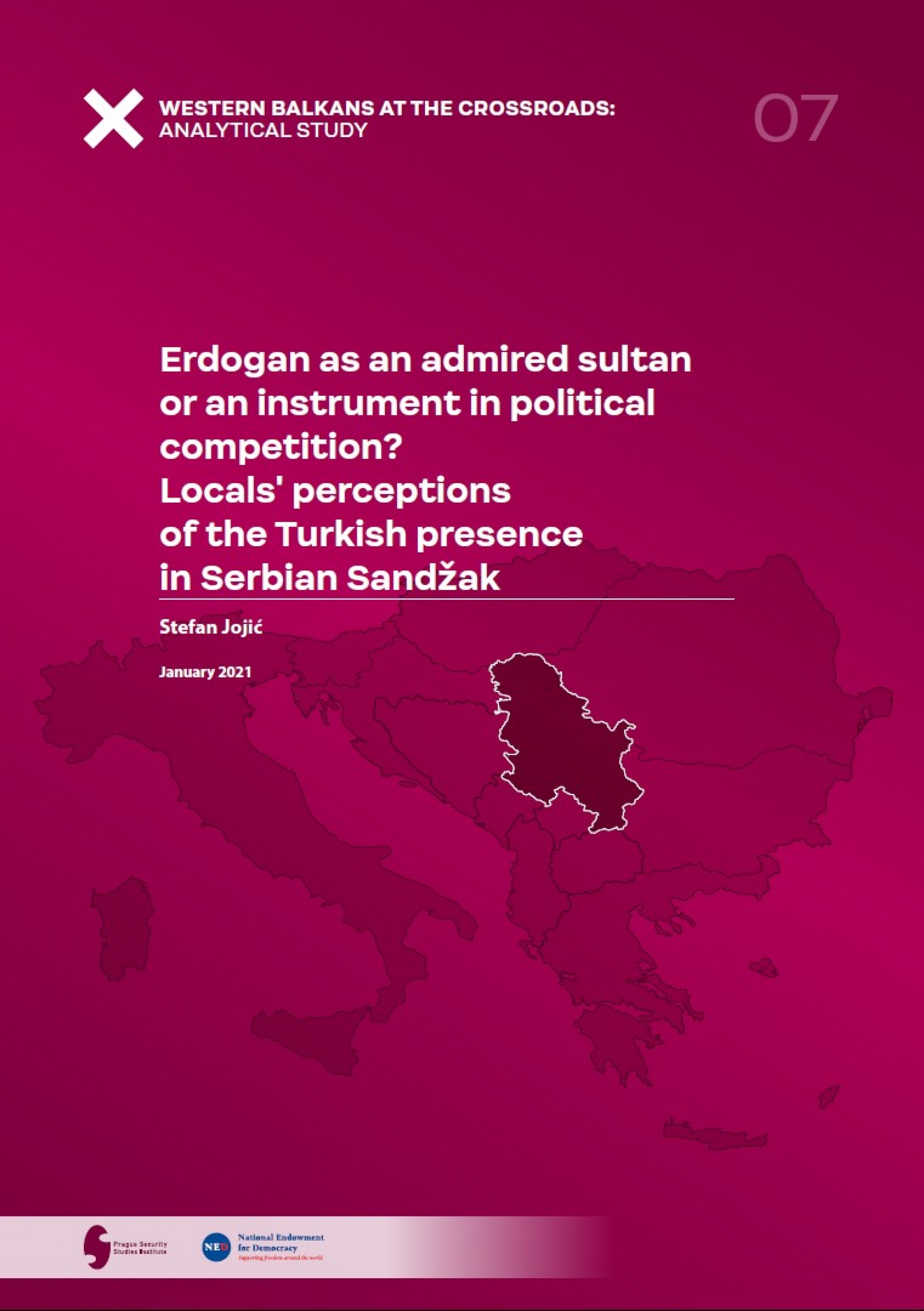
Information Resilience Program // Stefan Jojić / 15 Jan 2021
Erdogan as an admired sultan or an instrument in political competition? Locals' perceptions of the Turkish presence in Serbian Sandžak
This paper provides original insight into Turkey's engagement in the Serbia's Sandžak region with a particular focus on locals' understanding of the Turkish presence. Its findings are based on extensive field research and confirm the divergence between the perceptions of ethnic Serbs citizens and political elites, and their Bosniak counterparts. However, the study also shows that the Bosniak elites are not homogenous in their view of the Turkish presence in solely positive terms and that Turkey's reputation among the Bosniaks of Sandžak is instrumentalized by local political-interest groups in their mutual clashes.
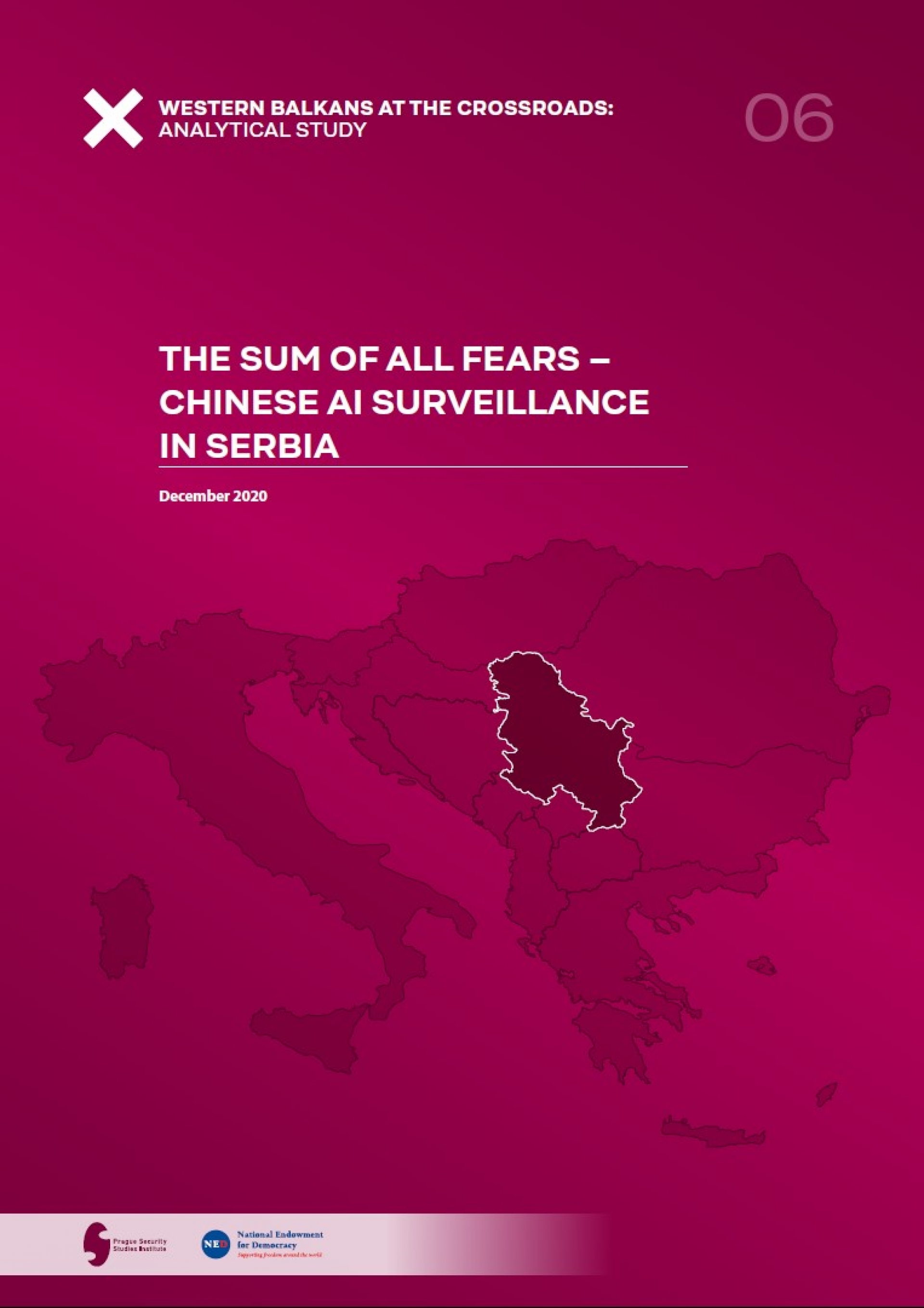
Information Resilience Program // PSSI / 30 Dec 2020
The Sum of All Fears – Chinese AI Surveillance in Serbia
This paper focuses on the introduction of the Smart City surveillance project in Belgrade, done in cooperation with the Chinese technology company Huawei. It aims to shed light on the ongoing discussions about the use of Chinese technology by Serbian authorities and reviews the concerns shared by some civil society representatives about the use of cutting-edge Chinese technology.
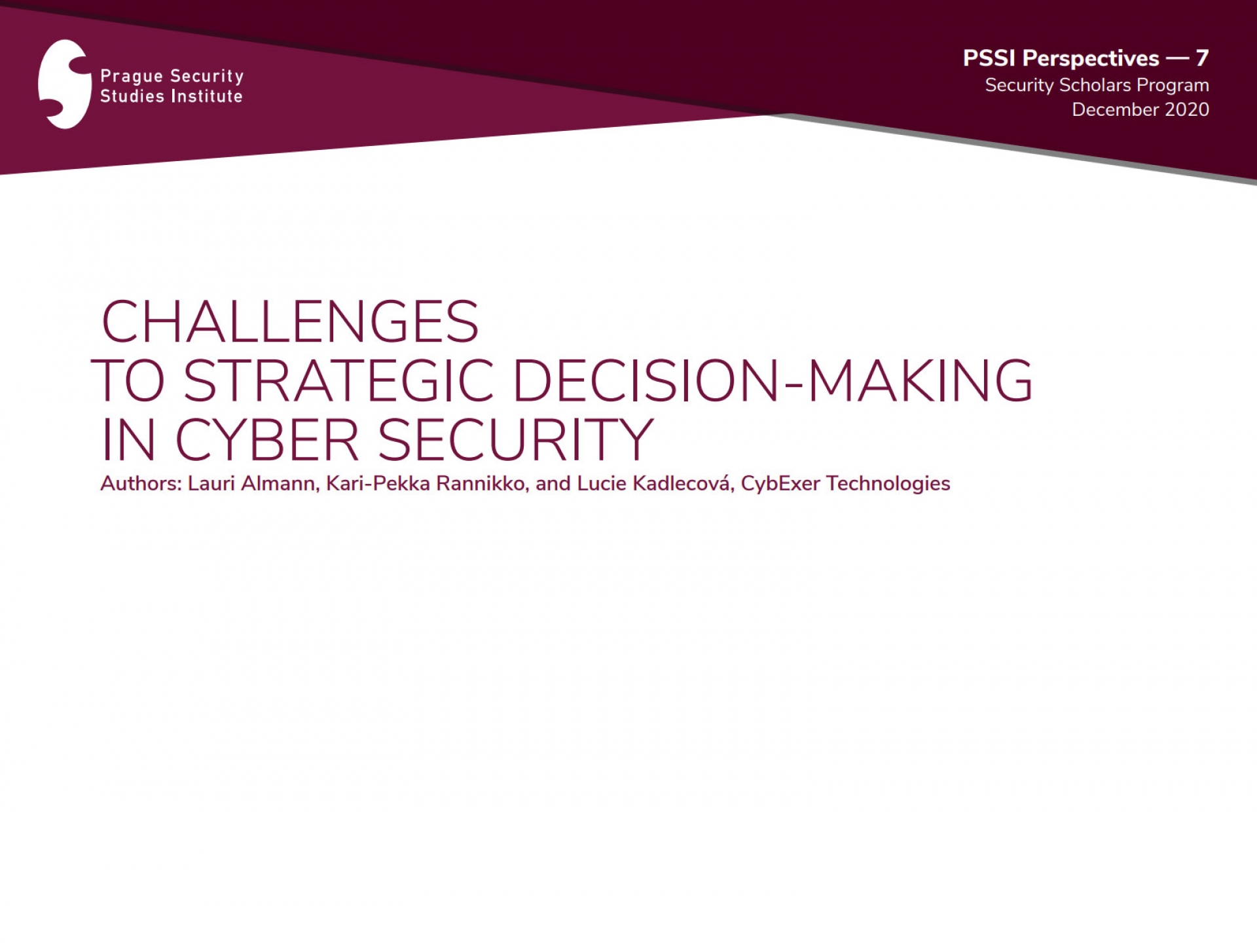
Security Scholars Program // Lauri Almann, Kari-Pekka Rannikko, and Lucie Kadlecová, CybExer Technologies / 22 Dec 2020
PSSI Perspectives #7 - Challenges to Strategic Decision-making in Cyber Security
The seventh edition of the PSSI Perspectives brings cyber security into focus. Moreover, it is written by our partners from a leading Estonian cyber security company Cybexer Technologies who delivered a table-top exercise that concluded this intensive week-long educational course. This PSSI Perspective takes a look at four challenges that decision makers face during every major cyber security crisis.
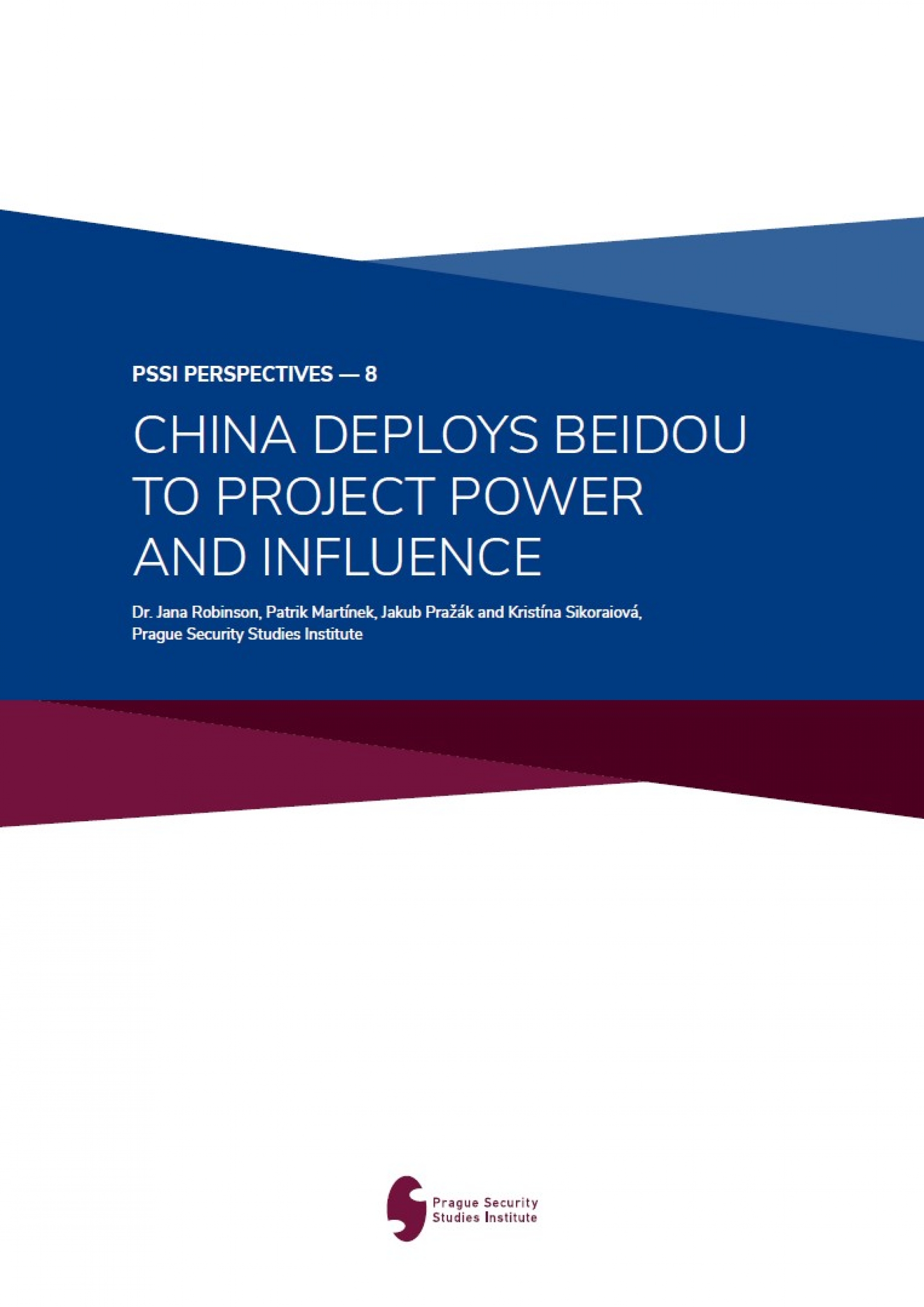
Security Scholars Program // Prague Security Studies Institute / 21 Dec 2020
PSSI Perspectives
As an educational, research and analytical public policy Institution, PSSI is committed to enriching – and shaping – the Transatlantic security policy debate, especially in more underdeveloped issue portfolios, like the Economic and Financial (E&F) Threat Domain and Space Security, areas in which PSSI enjoys a global leadership position in the NGO community. The Institute also has a long history of tracking several regional security issues.
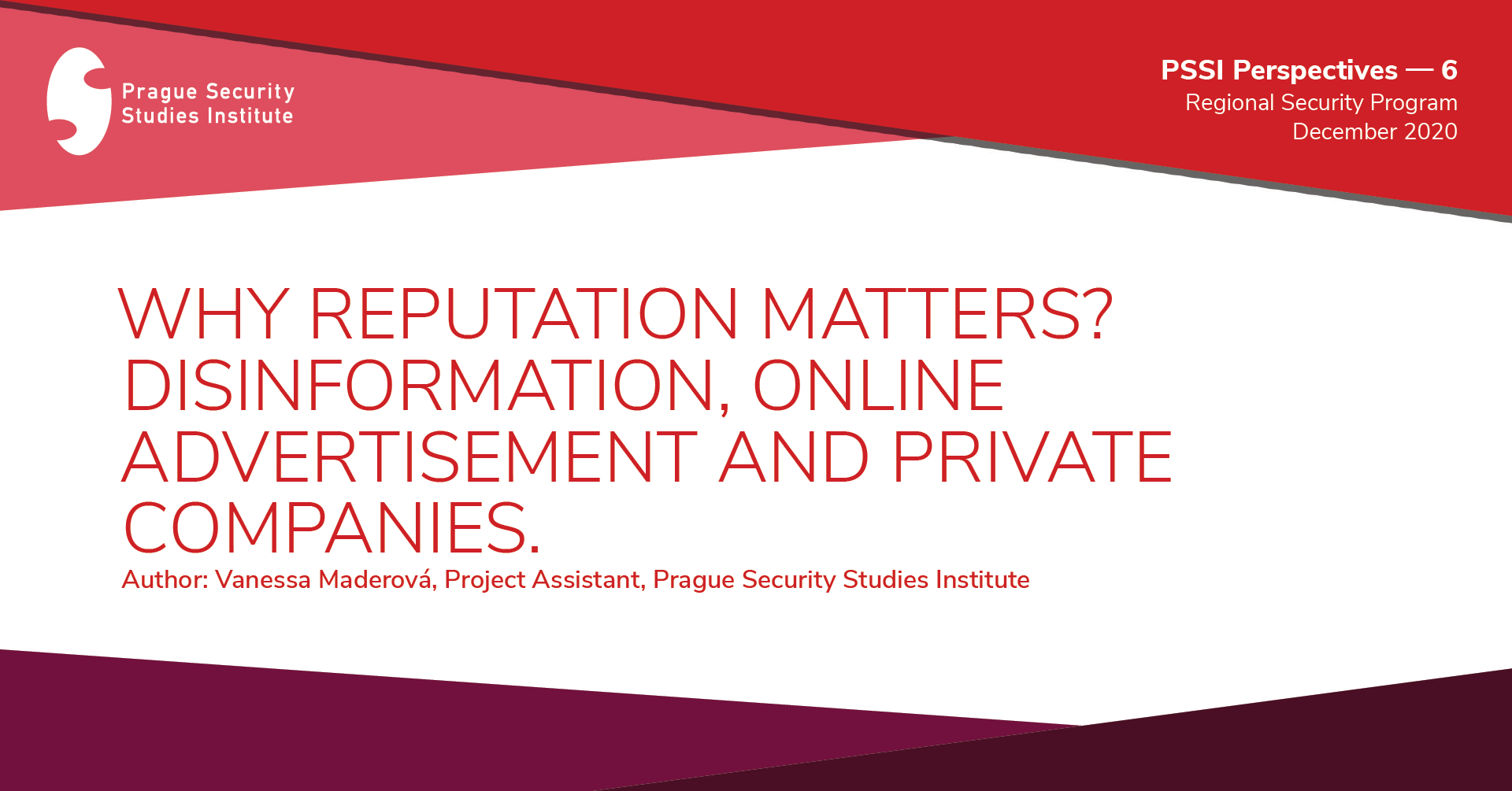
Information Resilience Program // Vanessa Maderová, Prague Security Studies Institute / 21 Dec 2020
PSSI Perspectives #6 - Why Reputation Matters? Disinformation, Online Advertisement and Private Companies.
The Prague Security Studies Institute’s next PSSI Perspective looks at the nexus of disinformation and online advertising.
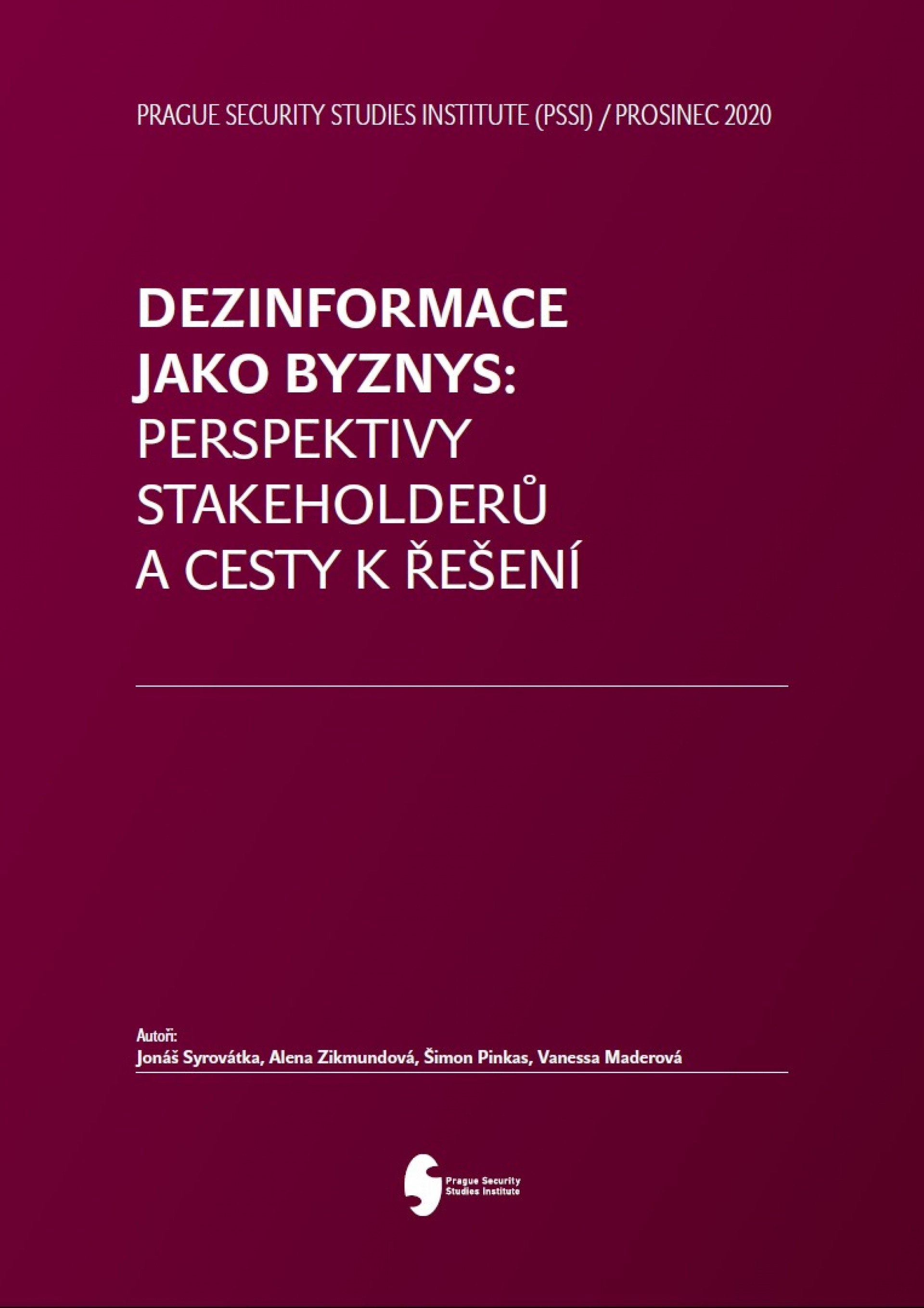
Information Resilience Program // Jonáš Syrovátka, Alena Zikmundová, Šimon Pinkas, Vanessa Maderová / 15 Dec 2020
Disinformation as Business: Stakeholders’ Perspective
In a previous study PSSI researchers outlined how disinformation works as a lucrative business for various media platforms. One of their most significant sources of revenue is online advertisement. Fortunately, PR agencies and private companies are increasingly aware of this problem.
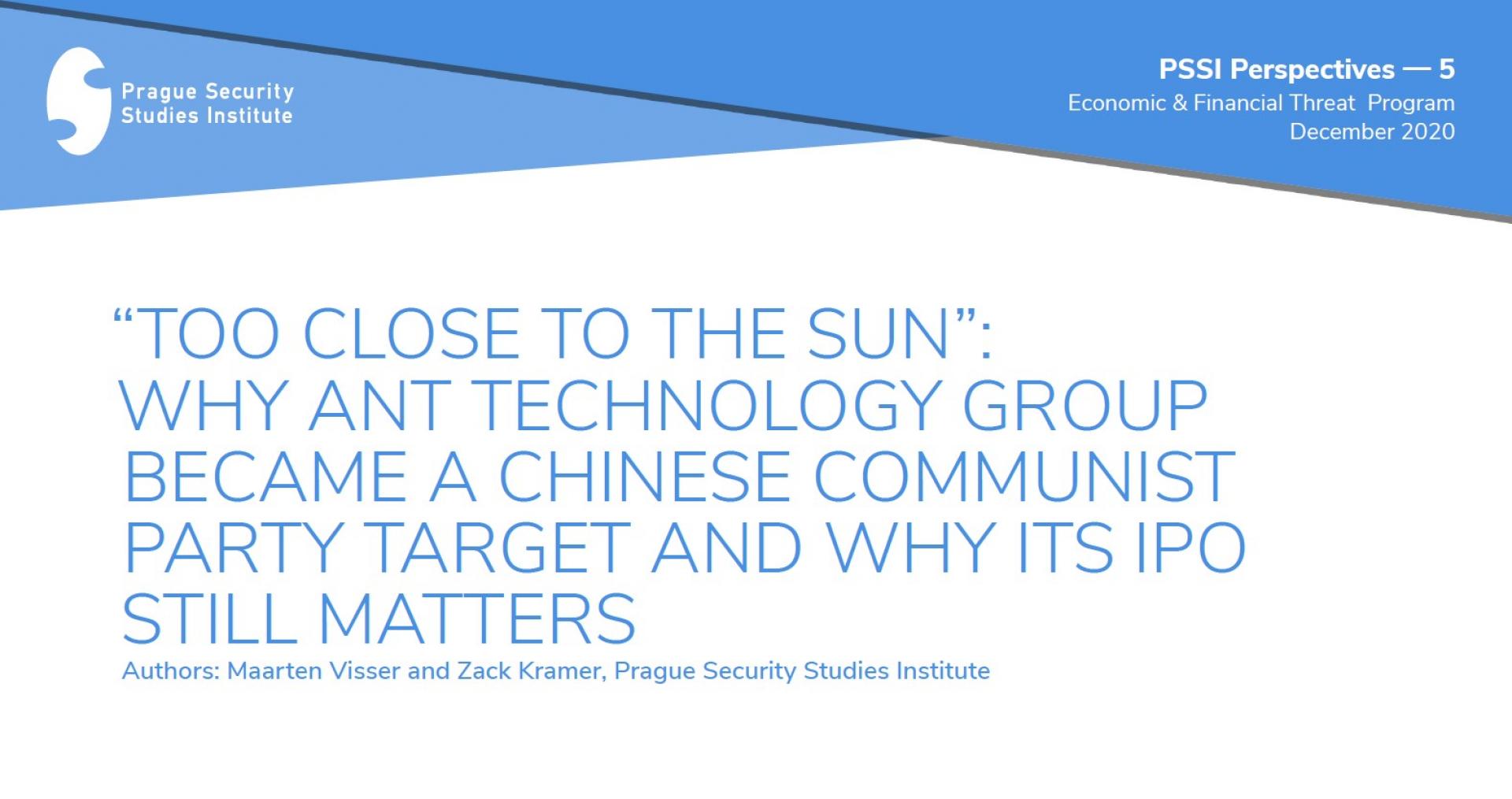
Economic & Financial Statecraft Program // Maarten Visser and Zack Kramer, Prague Security Studies Institute / 11 Dec 2020
PSSI Perspectives #5 - Why Ant Technology Group Became a Chinese Communist Party Target and Why Its IPO Still Matters
This new addition to the PSSI perspectives reacts to the suspension of Jack Ma’s Ant Financial Group on the Chinese Stock Exchanges, on November 3rd, 2020. Drawing on groundbreaking research conducted by our partner RWR Advisory Group, this perspective provides unique insights into the motivations behind the suspension, and, beyond, it offers a forensic analysis which exposes Ant Group’s reprehensible character.
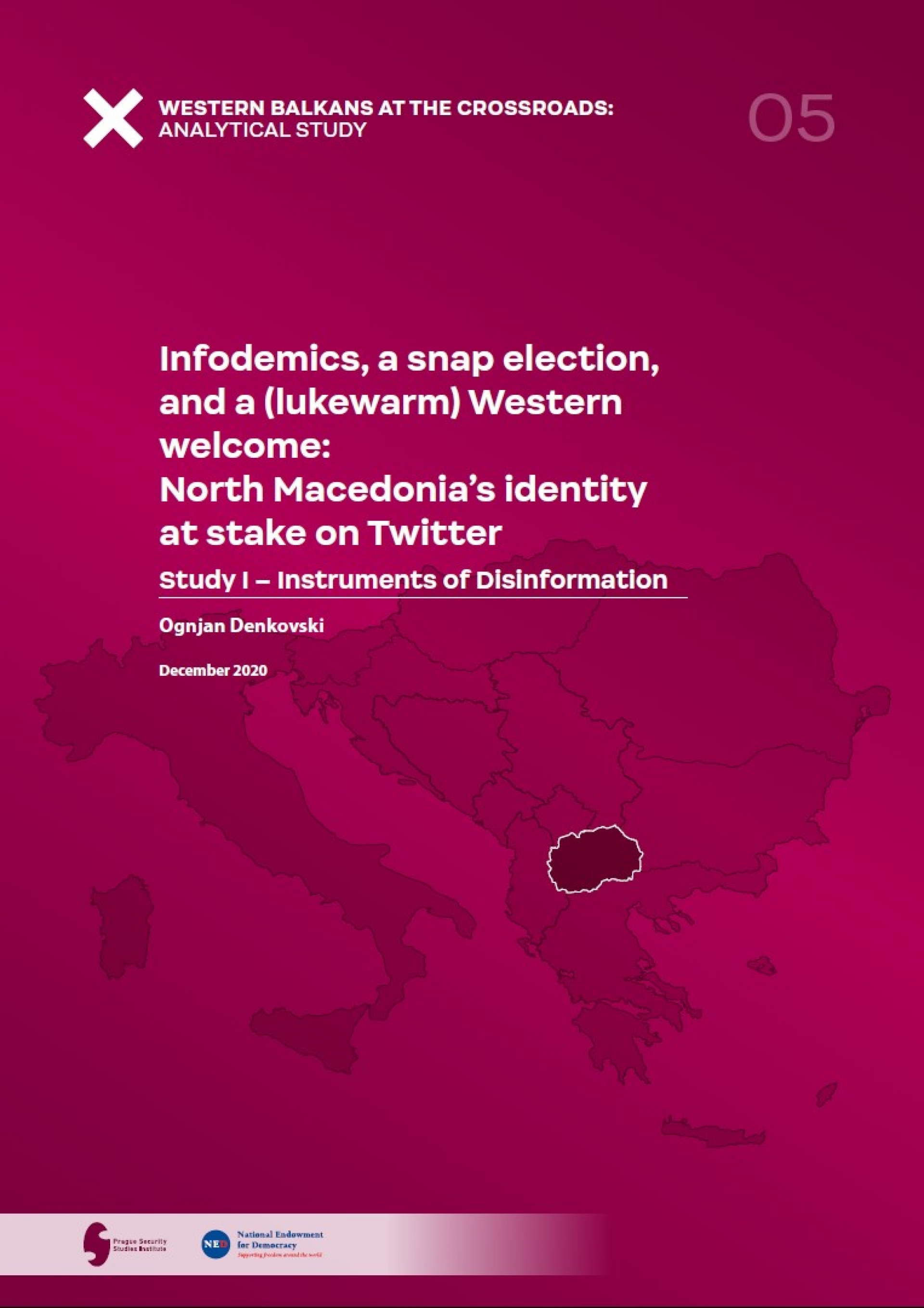
Information Resilience Program // Ognjan Denkovski / 3 Dec 2020
Infodemics, a snap election, and a (lukewarm) Western welcome: North Macedonia’s identity at stake on Twitter
This study brings a new perspective into how domestic and foreign actors’ propaganda methods for disinformation can be used on a social media platform – Twitter. On a case study of North Macedonia during a period close to the 2020 parliamentary election, the author applies original botnet identification techniques to identify a large network of users created in the run-up to the election and sympathetic to VMRO-DPMNE (the country’s right-wing party) and opposed to N. Macedonia’s NATO and EU integration.
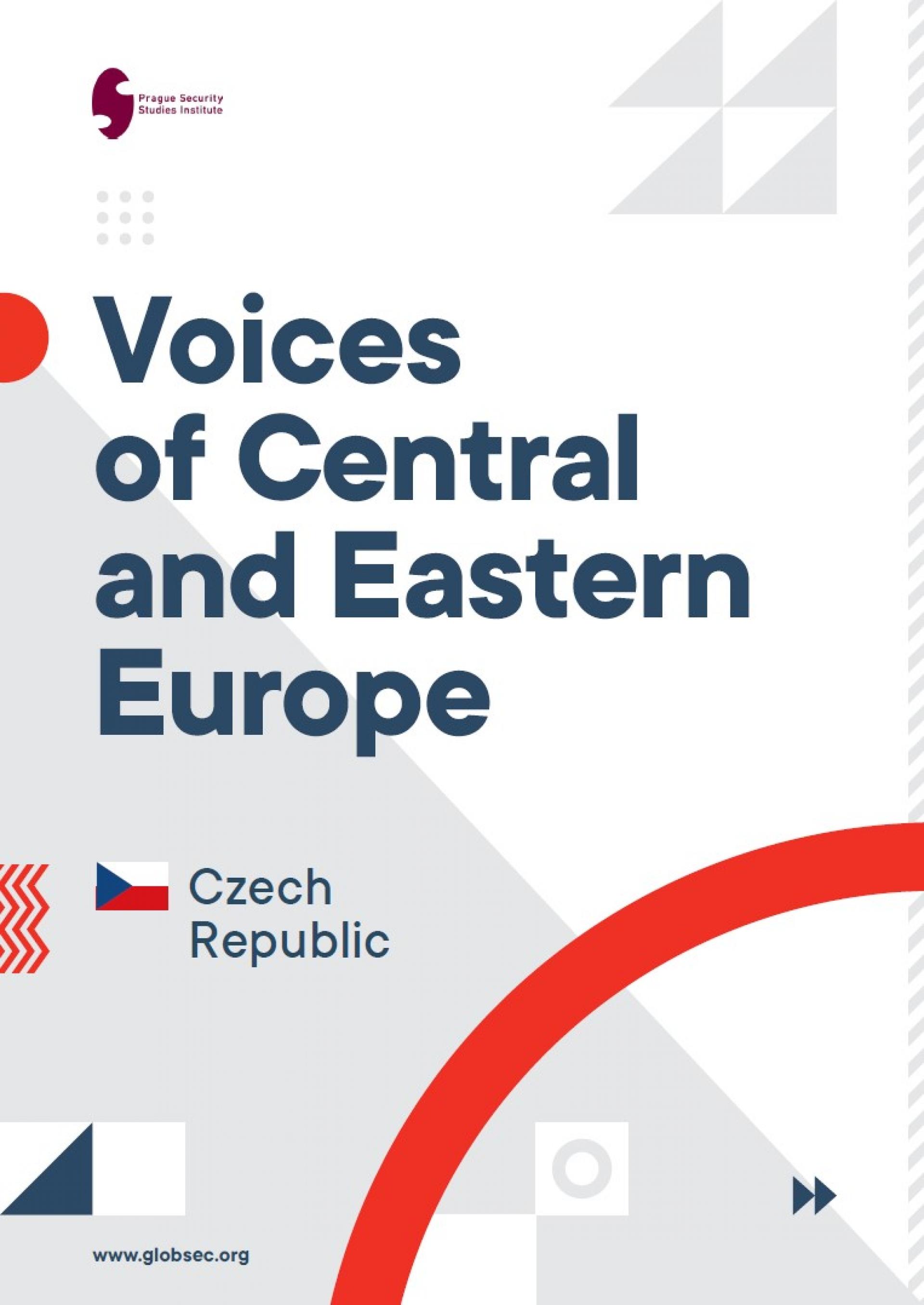
Information Resilience Program // Jonáš Syrovátka, Šimon Pinkas / 19 Nov 2020
Case Study: Profiles and Attitudes of Czechs that Believe in Conspiracy Theories
A new PSSI study based on data gathered from the research project “Voices of Central and Eastern Europe” aims to describe profiles, attitudes and values of those Czech citizens who believe in conspiracy theories.